
Ticketed Events
The following are special events taking place at the Annual Meeting. Advance registration is strongly recommended. Each event will appear on the registration form; once registered, you may revisit the form to add additional tickets.
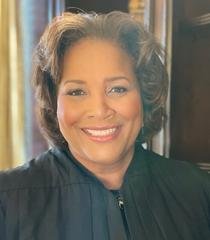
Judge J. Michelle Childs was appointed to the United States Court of Appeals for the District of Columbia Circuit in July 2022. She holds her undergraduate degree in Management from the University of South Florida Honors College, a law degree from the University of South Carolina School of Law, a Masters in Personnel and Employment Relations from the University of South Carolina’s Darla Moore School of Business, a Masters of Judicial Studies from Duke University School of Law, and an Honorary Doctorate Degree in Public Service from the University of South Carolina.
From 1992 to 2000, Judge Childs worked at Nexsen Pruet, ultimately serving as partner. From 2000 to 2002, Judge Childs was appointed to serve as the Deputy Director for the South Carolina Department of Labor, Licensing, and Regulation’s Division of Labor. From 2002 to 2006, Judge Childs received another appointment to serve as a commissioner on the South Carolina Workers’ Compensation Commission. In 2006, the South Carolina General Assembly elected her as a state circuit court judge. During that time, Judge Childs served as chief administrative judge for the General Sessions, which is South Carolina’s criminal court, and as chief administrative judge for the state’s business court. In 2010, she was appointed to the United States District Court for the District of South Carolina until her appointment to the D.C. Circuit.
Judge Childs is active with various local, state, and national bar organizations, as well as community organizations. She is the President-elect of the Federal Judges Association, a former Chair of the American Bar Association’s Judicial Division, and a former Secretary of the American Bar Association’s Labor and Employment Law Section. She serves as a fellow with the American Bar Association’s Litigation Section and its Committee on the American Judicial System. Judge Childs is also a member of the American Law Institute, having served as an Advisor to the Restatement (Third) of Employment Law, and is currently a member of its Council. Judge Childs is also a Council Member for the American Bar Association’s Administrative Law Section. She joins the class of 2022 Rodel Judicial Fellows. Additionally, Judge Childs will serve on the 2023 Bolch Judicial Institute (BJI) Advisory Board.
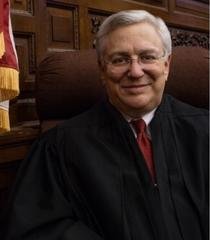
Richard Mark Gergel is a native of Columbia, South Carolina and is a graduate of the Richland School District No. 1 public schools. He attended New College, Oxford University and Duke University, where he graduated in 1975 summa cum laude. Gergel attended the Duke University School of Law and graduated in 1979. While at Duke Law School, Gergel was a member of the Editorial Board of the Duke Law Journal. He was sworn in as a member of the South Carolina Bar in November 1979, initially practicing with the law firm of Medlock and Davis. He subsequently began his own law firm in 1983 and practiced with the firm, Gergel, Nickles and Solomon, until 2010. Gergel was nominated as an United States District Judge by President Barack Obama in December 2009 and was confirmed by an unanimous vote of the United States Senate on August 5, 2010. Gergel presides in the Charleston Federal Courthouse.has a long standing interest in the history of his native state and has written books and numerous articles and book chapters on South Carolina history. His latest book is titled, Unexampled Courage. He is married to Dr. Belinda Friedman Gergel and they have two sons, Richie and Joseph.
In this session, Judge J. Michelle Childs of the U.S. Court of Appeals for the D.C. Circuit will interview Judge Richard M. Gergel of the U.S. District Court, District of South Carolina, about his book, Unexampled Courage. This book describes the racial awakening of President Truman and Judge J. Waties Waring of the U.S. District Court, District of South Carolina, and traces their influential roles in changing the course of America’s civil rights history.
This program is free to attend, but registration is required.
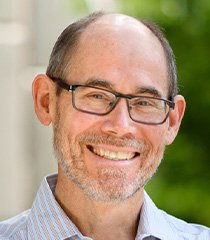
Tom Baker is a highly regarded insurance expert, a leading scholar of insurance law and policy, and a devoted law teacher. His research explores insurance law, institutions, and markets using methods from history, economics, psychology and sociology. His many books, articles, and reports address topics such as the impact of insurance on personal injury and securities litigation, health insurance reform, insurance underwriting and claims management, the historical development of insurance institutions, insurance company restructuring, and many aspects of insurance coverage. Recent articles include “The Government Behind Insurance Governance: Lessons for Ransomware,” which sets out a new framework for analyzing how governments help make insurance markets, and “Uncertainty > Risk: Lessons for Legal Thought From the Insurance Runoff Market,” which argues for understanding insurance markets as centrally about managing uncertainty, not predictable risks. Current research topics include cyber liability and insurance, long term care insurance, secondary insurance markets, legal finance, and the empirical study of insurance litigation.
Baker is the Reporter for the American Law Institute’s Restatement of the Law Liability Insurance and a co-founder of Picwell, a health data analytics company that provides advanced decision support tools to health insurance exchanges, insurers, and employers. Before joining the Penn Law faculty in 2008, Baker served for eleven years as the inaugural Connecticut Mutual Professor and Director of the Insurance Law Center at the University of Connecticut. After graduating from Harvard Law School, Baker clerked for Judge Juan R. Torruella of the U.S. Court of Appeals for the First Circuit, practiced with the law firm of Covington & Burling, served as Associate Counsel to the Independent Counsel Iran/Contra, and entered law teaching as an associate professor at the University of Miami Law School.
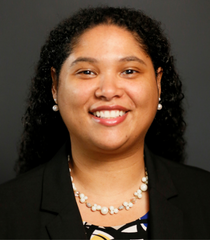
Victoria Shannon Sahani is the Associate Provost for Community and Inclusion at Boston University and a Professor of Law at Boston University School of Law. She previously served as Associate Dean of Faculty Development / Special Projects and Professor of Law at Arizona State University’s Sandra Day O’Connor College of Law. She began her teaching career and was promoted to Associate Professor of Law at Washington & Lee University School of Law.
Before joining BU Law, she served as Director of the Faculty Inclusion Research for System Transformation (FIRST) Initiative at Arizona State University, a university-wide initiative commissioned by the ASU president's office examining the history of race and inclusion among faculty at the University. She also holds several leadership positions in the international arbitration community, including Chair of the Institute for Transnational Arbitration (ITA) Academic Council, Chair Emeritus of the Academic Subcommittee of the United States Council for International Business (USCIB) Arbitration Committee, Member of the International Chamber of Commerce (ICC) Commission on Arbitration and ADR, and Member of the ICCA-Queen Mary Task Force on Third-Party Funding in International Arbitration. She is a co-author of the book Third-Party Funding in International Arbitration (2d ed. 2017) (with Lisa Bench Nieuwveld), as well as numerous book chapters, articles, essays, and blog posts.
Before joining the legal academy, Dean Sahani served for five years as Deputy Director of Arbitration and ADR in North America for the ICC International Court of Arbitration, as well as Deputy Director of the Arbitration and ADR Committee of the United States Council for International Business (USCIB). Before joining the ICC and USCIB, she served as an associate attorney with Pillsbury Winthrop Shaw Pittman LLP in San Francisco, where she specialized in complex tax credit and municipal bond financing arrangements for affordable housing and community development-focused real estate transactions, as well as matters involving American Indian tribes. She earned her undergraduate degree from Harvard University and her law degree from Harvard Law School. She is an active member of the bar in New York and the District of Columbia.
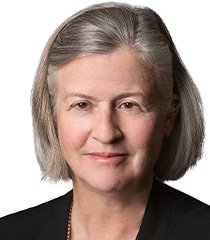
Virginia A. Seitz, former Assistant Attorney General of the Office of Legal Counsel in the Department of Justice, is a partner in Sidley Austin’s Supreme Court and Appellate practice. Virginia has practiced in the appellate courts for 25 years. On behalf of a wide range of clients in numerous industries, she has handled cases in the United States Supreme Court, in virtually all of the courts of appeals and in state appellate courts.
She has authored more than 75 briefs in the United States Supreme Court. She was counsel of record on the amicus brief on behalf of retired military officers in Grutter v. Bollinger, 539 U.S. 306 (2003), and Gratz v. Bollinger, 539 U.S. 244 (2003). The brief was cited by the Supreme Court in the oral argument and opinion in Grutter; and a New York Times piece noted that it “may have been the most influential amicus brief in the history of the Supreme Court.” Finally, she has handled an array of district court litigation involving important constitutional and federal law issues, including the Appropriations and Supremacy Clauses of the Constitution, the First Amendment, Title IX, Title VII, the Anti-Deficiency Act, ERISA, RICO, the NLRA, section 301 of the Labor Management Relations Act and the Landrum-Griffin Act.
She returned to Sidley in 2014 after serving for two-and-a-half years in the Senate-confirmed position of Assistant Attorney General for the Office of Legal Counsel in the Department of Justice. She was the first woman to be confirmed to that position. As the leader of that Office, she was responsible for providing legal advice to the President and Executive Branch departments and agencies on issues of particular difficulty and importance, including those issues on which there was a dispute between federal agencies. She currently serves as General Counsel to the firm.
Earlier in her career, she was confirmed by the Senate to the first Board of Directors of the Congressional Office of Compliance and served from May 1995 to May 2000. That Board promulgates regulations and adjudicates disputes concerning Members of Congress and their employees under the Congressional Accountability Act, which applies all major federal labor and employment laws to legislative branch employers and employees. She currently serves as a member of the Advisory Committee on Civil Rules, the Committee which studies and develops proposed amendments to the Federal Rules of Civil Procedure for submission to the Committee on Rules of Practice and Procedure of the Judicial Conference of the United States.
She has been recognized for her Appellate Law practice by Chambers USA (2009, 2010, 2011) and recommended by The Legal 500 US in Litigation: Supreme Court and Appellate (2010, 2011). She also was included in The Best Lawyers in America from 2001–2012, 2015–2017.
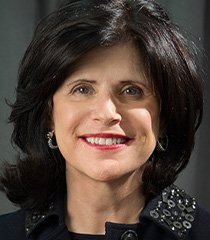
Sarah S. Vance is a Judge for the U.S. District Court for the Eastern District of Louisiana, having served as Chief Judge from 2008 to 2015. Before joining the bench in 1994, she was a partner in the New Orleans firm of Stone Pigman Walther Wittmann & Hutchinson, where her practice focused on antitrust and commercial litigation.
Chief Judge Vance was elected to the ALI in 1996 and was elected to the Council in 2013. She is an Adviser on the Restatement of the Law of Liability Insurance project and is on the Members Consultative Group for the Principles of Government Ethics project.
Presented by ALI CLE, this session will focus on the state of litigation funding, in particular on lawyers’ roles and ethical duties in the emerging field of litigation finance. The panel will address the following:
- Lawyers’ roles in relation to litigation finance
- Potential conflicts and corresponding ethical duties
- Similarities and differences between the most established form of investment-backed third-party litigation funding – liability insurance – and the newer, plaintiff-side funding, with a focus on lawyers’ roles and ethical duties
- Proposals for regulation by courts, bar associations, legislatures and what they could mean for lawyers’ roles and duties.
Tuition for this program is $150 for ALI members, $195 for all others. To register, use the ALI Annual Meeting registration form. Registrations will be accepted at the door if space permits.
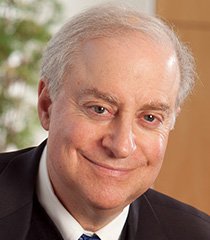
David F. Levi is the Levi Family Professor of Law and Judicial Studies and Director of the Bolch Judicial Institute. Professor Levi was previously the James B. Duke and Benjamin N. Duke Dean of the School of Law. The 14th dean of Duke Law School, he served from 2007 to 2018.
Prior to his appointment in 2007, he was the Chief United States District Judge for the Eastern District of California with chambers in Sacramento.
After law school, he clerked with Judge Ben C. Duniway of the U.S. Court of Appeals for the Ninth Circuit and with U.S. Supreme Court Justice Lewis F. Powell. He also served in the U.S. Attorney’s Office for the Eastern District of California as a prosecutor and was appointed a U.S. Attorney.
Professor Levi was elected to ALI in March 1991 and to the Council in October 2005. He became ALI's 10th President in May 2017.
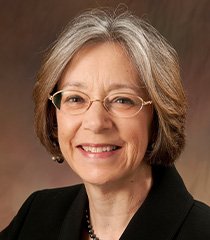
Diane P. Wood has been on the U.S. Court of Appeals, Seventh Circuit since 1995, serving as Chief Judge from 2013 to 2020. She also is a Senior Lecturer in Law at the University of Chicago Law School, where she teaches in the areas of federal civil procedure, antitrust law, and international trade and business.
Before her appointment to the bench, she was the Harold J. and Marion F. Green Professor of International Legal Studies at the University of Chicago Law School, the first woman to hold a named chair at the school. She also served for two years as Deputy Assistant Attorney General in the Antitrust Division of the U.S. Department of Justice, with responsibility for the Division's international, appellate, and legal policy matters.
Wood was elected to the ALI in 1990 and was elected to the Council in 2003. She currently serves on the Special Committee on ALI’s 100th Anniversary and chairs the ALI Early Career Scholars Medal Committee. She has served as an Adviser to Restatement of the Law, The Law of American Indians; Restatement of the Law Fourth, The Foreign Relations Law of the United States – Jurisdiction; Legal and Economic Principles of World Trade Law; Principles of the Law of Aggregate Litigation; and as U.S. Adviser to Transnational Rules of Civil Procedure. She also served on the Members Consultative Group for Complex Litigation: Statutory Recommendations and Analysis.
After law school, she clerked for Judge Irving L. Goldberg of the U.S. Court of Appeals for the Fifth Circuit and for Justice Harry A. Blackmun of the U.S. Supreme Court.
She was recently appointed as Director Designate of ALI and will assume the role of Director in May 2023.
All members and guests are invited to attend this luncheon, which will include an interactive Q&A with new ALI Director Diane P. Wood of the U.S. Court of Appeals for the Seventh Circuit and ALI President David F. Levi.
Tickets are $65 per person.
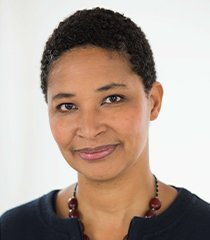
Danielle Allen is a professor of public policy, politics, and ethics at Harvard University, Director of the Edmond and Lily Safra Center for Ethics, and James Bryant Conant University Professor, one of Harvard’s highest honors. She is also Founder and President of Partners In Democracy. She is a seasoned nonprofit leader, democracy advocate, national voice on pandemic response, distinguished author, and mom. Danielle’s work to make the world better for young people has taken her from teaching college and leading a $60 million university division to driving change at the helm of a $6 billion foundation, writing for the Washington Post, advocating for cannabis legalization, democracy reform, and civic education, and most recently, to running for governor of Massachusetts. During the height of COVID in 2020, Danielle’s leadership in rallying coalitions and building solutions resulted in the country’s first-ever Roadmap to Pandemic Resilience; her policies were adopted in federal legislation and a Biden executive order. Danielle made history as the first Black woman ever to run for statewide office in Massachusetts. In her role as board chair for Partners In Democracy, She continues to advocate for democracy reform to create greater voice and access in our democracy, and drive progress towards a new social contract that serves and includes us all. Her many books include the widely acclaimed Our Declaration: a reading of the Declaration of Independence in defense of equality; Cuz: The Life and Times of Michael A.; Democracy in the Time of Coronavirus; and Justice by Means of Democracy.
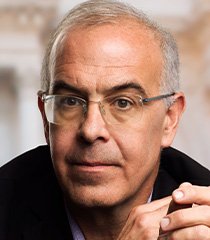
David Brooks is a columnist for The New York Times, a position he began in September 2003. He is also a commentator on “The PBS Newshour.”
He is the author of “The Second Mountain,” about our quest for a moral life. His other books include “The Road to Character,” “Bobos In Paradise: The New Upper Class and How They Got There” and “The Social Animal: The Hidden Sources of Love, Character, and Achievement.”
Mr. Brooks is on the faculty at Yale University and is a member of the American Academy of Arts & Sciences.
Born on August 11, 1961 in Toronto, Canada, Mr. Brooks graduated with a BA in history from the University of Chicago in 1983. He became a police reporter for the City News Bureau, a wire service owned jointly by the Chicago Tribune and Sun Times.
He worked at The Washington Times and then The Wall Street Journal for 9 years. His last post at the Journal was as op-ed editor. Prior to that, he was posted in Brussels, covering Russia, the Middle East, South Africa and European affairs. His first post at the Journal was as editor of the book review section, and he filled in as the Journal's movie critic.
He served as a senior editor at The Weekly Standard for nine years, as well as contributing editor for The Atlantic and Newsweek. Follow him on Twitter @nytdavidbrooks and his Weave project @Weavetheppl.
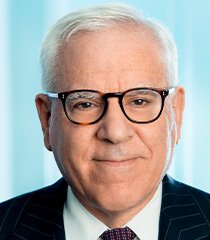
David M. Rubenstein is Co-Founder and Co-Chairman of The Carlyle Group, one of the world’s largest and most successful private investment firms. Established in 1987, Carlyle now manages $369 billion from 29 offices around the world.
Mr. Rubenstein is Chairman of the Boards of the John F. Kennedy Center for the Performing Arts, the Council on Foreign Relations, the National Gallery of Art, the Economic Club of Washington, and the University of Chicago; a Fellow of the Harvard Corporation; a Trustee of Memorial Sloan-Kettering Cancer Center, Johns Hopkins Medicine, the Institute for Advanced Study, the National Constitution Center, the Brookings Institution, and the World Economic Forum; and a Director of the Lincoln Center for the Performing Arts and the American Academy of Arts and Sciences, among other board seats.
Mr. Rubenstein is a leader in the area of Patriotic Philanthropy, having made transformative gifts for the restoration or repair of the Washington Monument, Lincoln Memorial, Jefferson Memorial, Monticello, Montpelier, Mount Vernon, Arlington House, Iwo Jima Memorial, the Kennedy Center, the Smithsonian, the National Archives, the National Zoo, the Library of Congress, and the National Museum of African American History and Culture.
Mr. Rubenstein is an original signer of The Giving Pledge; the host of The David Rubenstein Show and Bloomberg Wealth with David Rubenstein; and the author of The American Story, How to Lead, The American Experiment, and How to Invest.
We are excited to welcome to the National Portrait Gallery moderator David Rubenstein and panelists Danielle Allen and David Brooks as they discuss "The State of Democracy in the United States."
The event will also feature a panel following the reception and buffet with an open bar. Round-trip shuttle buses will transport Meeting attendees from The Ritz-Carlton beginning at 6:15 p.m., and back to The Ritz-Carlton upon the conclusion of this event.
Tickets are $85 per person.

Gerard E. Lynch is a judge on the U.S. Court of Appeals for the Second Circuit where he has served since 2009. He previously served on the Southern District of New York bench from 2000 to 2009. He is also the Paul J. Kellner Professor of Law at Columbia Law School, where he teaches courses in criminal law and procedure, sentencing, and professional responsibility.
Judge Lynch was elected to the ALI in December 1998 and was elected to the Council in 2009. He serves as an Adviser on the Model Penal Code: Sexual Assault and Related Offenses project; the Model Penal Code: Sentencing project; and the Restatement Third, The U.S. Law of International Commercial Arbitration project.
All members and guests are welcome to attend this luncheon honoring New Life (Class of 1998) and New 50-Year (Class of 1973) members. The 1998 and 1973 Class Gifts will be presented to the Institute by class representatives.
Judge Gerard E. Lynch (U.S. Court of Appeals for the Second Circuit, ALI Council member, and Life Member from the Class of 1998) will speak at the event.
Tickets are $65 per person.
The Annual Dinner is sold out. Contact membership@ali.org to join the wait list.
This year's reception and dinner will take place at the National Building Museum. The dinner will include the presentation of the Henry J. Friendly Medal to Chief Justice of the United States John G. Roberts, Jr., by Supreme Court Associate Justice Elena Kagan.
A round trip shuttle bus is available from The Ritz-Carlton. The first shuttle departs the hotel at 6:15 p.m. and will return to The Ritz-Carlton upon the conclusion of this event. The reception will begin at 7:00 p.m. Dress is business attire or semi-formal.
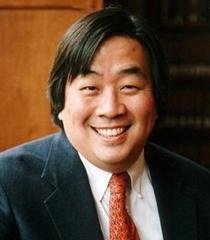
Harold Hongju Koh is Sterling Professor of International Law at Yale Law School, where he has taught since 1985, and served as 15th Dean from 2004-09. Professor Koh was elected to the ALI in May 1992 and was elected to the Council in May 2013. He served previously as Counselor of the Restatement Fourth, Foreign Relations Law of the United States project and as an Adviser on the Transnational Rules of Civil Procedure project.
From 2009 to 2013, Professor Koh ;took leave as the Martin R. Flug ’55 Professor of International Law to join the State Department as its 22d Legal Adviser, service for which he received the Secretary of State 's Distinguished Service Award. He returned to that office in 2021 as Senior Advisor under President Joe Biden. From 1993 to 2009, he was the Gerard C. & Bernice Latrobe Smith Professor of International Law at Yale Law School, and from 1998 to 2001, he served as U.S. Assistant Secretary of State for Democracy, Human Rights and Labor. He also previously served as Attorney-Adviser, Office of Legal Counsel, U.S. Department of Justice (1983-85), law clerk to Justice Harry A. Blackmun of the U.S Supreme Court (1981-82), and law clerk to Judge Malcolm Richard Wilkey of the U.S. Court of Appeals for the DC Circuit (1980-81). He is the recipient of 17 honorary degrees and more than thirty awards for his work in human rights and international law.
Please consider joining us at this lunch event on the final day of the 2023 Annual Meeting. Our luncheon speaker will be Harold Hongju Koh, Sterling Professor of International Law at Yale Law School and ALI Council member.
Tickets are $65 per person.
